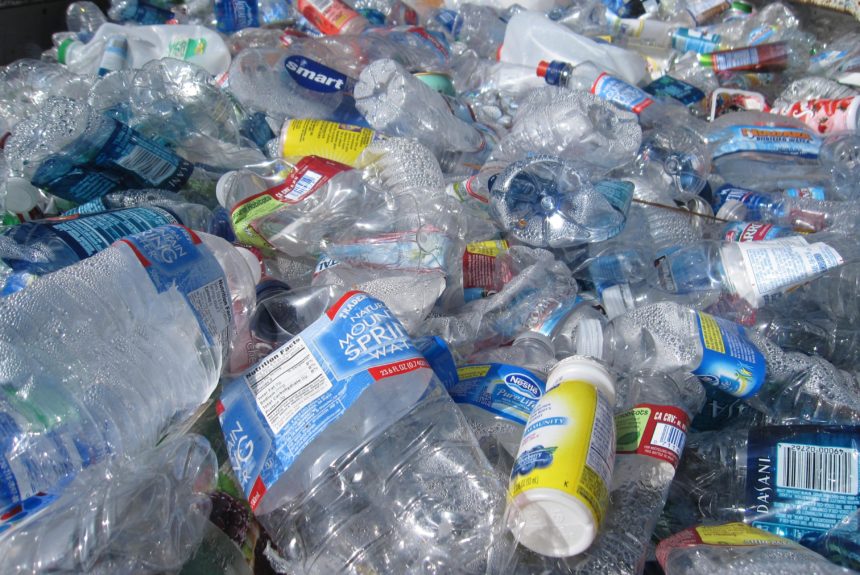Plastics are an essential part of our everyday lives. Plastic, which is created by refining raw materials such as oil and natural gas in a process called cracking, is in almost everything we own, from medical devices to seatbelts and cell phones. It plays an indispensable role in making our lives cleaner, healthier, and safer. Many people contribute to plastics recycling as a way to help the earth, but there are a few things to know.
While plastic itself is not inherently bad, the pollution that comes from it causes damage to the environment. However, calls for bans on all plastic are counterproductive. Market forces are making plastics cleaner and more efficient, and smart policies can reduce global, regional, and local waste.
Facts vs. Myths
- FACT: The United States is the largest producer of plastic in the world.
- MYTH: America is the largest polluter of plastic waste in the ocean.
- Only about 2% of plastic waste in the United States is mismanaged, leading to oceanic pollution. Conversely, 10 rivers, located primarily in Asia and Africa, are responsible for 90% of global plastic pollution.
- FACT: Domestic plastic recycling is largely inefficient.
- In 2017, the United States recycled only 10% of the plastic that it produced. This is a result of unclear plastics recycling guidelines that lead to consumer confusion and burdens recycling centers, making them unprofitable.
- MYTH: Global plastic production is declining.
- Production has grown rapidly since 1950 and is expected to double by 2050.
The benefits of plastic
- Plastic use can be environmentally beneficial.
- It takes four times more energy to produce a paper bag than a plastic one.
- A reusable, organic cotton grocery bag has to be reused 20,000 times to make up for the amount of energy required to produce it.
- By using plastics, auto manufacturers have made vehicles more fuel efficient and subsequently less emissions-heavy.
- Plastic home insulation benefits the environment by improving energy efficiency.
- It takes four times more energy to produce a paper bag than a plastic one.
- Plastics are economically important.
- In 2019, the U.S. plastics industry employed more than 1 million people and accounted for some $430 billion in shipments.
- Plastics are also in everyday items such as clothing, seatbelts, and computers.
The problems with plastic
- Plastic pollution hurts the environment.
- Since the 1950s, the world has produced more than 8.3 billion tons of plastic, 60% of which has ended up in landfills and the natural environment.
- At least 8 million tons of plastic end up in our oceans each year.
- Once polluted, plastics never truly decompose. Instead they slowly break down into smaller pieces, called microplastics.
- Plastic pollution is expensive.
Markets vs Mandates
- Blanket-bans of all plastic use would provide little environmental benefit and restrict consumer choice, pushing up prices for lower-income families.
- The private sector is already leading the way in cleaning up plastic pollution.
- The Ocean Cleanup has begun removing plastic pollution from rivers and oceans, with a goal of removing 90% of plastic debris from global waterways, and expects to clean 50% of the Great Pacific Garbage Patch within 5 years.
- 4ocean has collected more than 15 million tons of oceanic plastic since 2017.
- The private sector is making environmentally-friendly plastic alternatives.
- Newlight Technologies has developed a carbon-negative, sustainable plastic cutlery alternative for fast food restaurants called Air Carbon.
- Stasher is making silicon reusable bags that are BPA and plastic free.
- Globally, there is some $30 trillion invested in alternative-plastic companies.
How to Improve Plastics
- Adopt policies that spur economic freedom and protect property rights.
- Strong property rights in the United States have led to less plastic pollution and incentivized better environmental stewardship.
- Allow the free market to continue to innovate.
- Regulations that prohibit domestic manufacturing would do little to reduce global plastic waste as nations such as China and India would continue polluting.
- Make recycling programs more efficient.
- Currently, plastics recycling programs in the United States are inefficient because consumers don’t know what can and cannot be recycled, which has resulted in different cities and municipalities ending recycling programs altogether.
- By clarifying recycling guidelines, we can make our recycling programs more efficient and cost-competitive, incentivizing more programs in the future.
Summary
- Plastic is in almost everything we use and is essential for daily life.
- Plastic pollution is damaging to the environment and economy.
- We can make environmentally-friendly products and choices by empowering private sector innovation.


